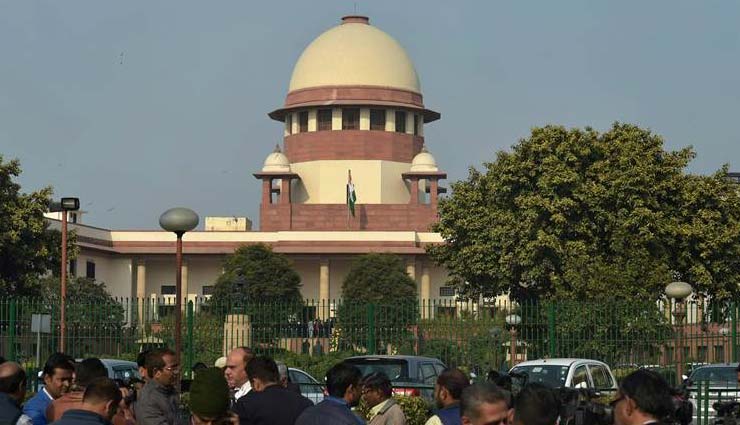Supreme Court Commences Hearing To Examine Constitutional Validity Of Adultery Law
By: Priyanka Maheshwari Thu, 02 Aug 2018 06:56:20

The Supreme Court today commenced hearing on pleas seeking quashing of the adultery provision in the IPC on the ground that it only punishes married men for having extra-martial sexual relations with a married woman. A five-judge Constitution bench headed by Chief Justice Dipak Misra said it will not touch the law to make it an offence for women too.
“We will test whether Section 497 of the Indian Penal Code (IPC) on the basis of Article 14 (equality before law) should remain a criminal offence at all,” the bench also comprising justices R F Nariman, A M Khanwilkar, D Y Chandrachud and Indu Malhotra, said.
Section 497 of the 158-year-old IPC says: “Whoever has sexual intercourse with a person who is and whom he knows or has reason to believe to be the wife of another man, without the consent or connivance of that man, such sexual intercourse not amounting to the offence of rape, is guilty of the offence of adultery.”
“He shall be punished with imprisonment of either description for a term which may extend to five years, or with fine or with both. In such case the wife shall not be punishable as an abettor,” the section says. During the brief hearing, the court also rejected the demand of Additional Solicitor General Pinky Anand for referring the matter to a seven-judge bench, saying these issues were totally different than the issue that was considered by a five-judge bench in 1954.
“The issue, which was considered in the 1954 verdict of a five-judge bench, was whether a woman can be considered as abettor. In the instant petition it is totally different,” the bench said. It said adultery is also a ground of divorce and apart from other civil remedies under various statutes. “So, we have to examine whether the adultery provision requires to remain a criminal offence at all,” the bench said.
Advocate Kaleeswaram Raj, appearing for petitioner Joseph Shine, an Indian who is living in Italy, said he is seeking quashing of IPC Section 497 and CrPC Section 198(2).
The Code of Criminal Procedure (CrPC) section only allows husband of the woman to file a complaint. He said they are seeking quashing of the provisions on the ground that it is not gender neutral and violative of the fundamental right to privacy. “The question before the bench is whether a person can be sent to jail on the ground that he had sexual relations with a married woman,” he said.
The bench said it would resume further hearing on the issue tomorrow.
The apex court had on January 5, referred to a five-judge Constitution bench the plea challenging the validity of a penal law on adultery. The court had taken a prima facie view that though the criminal law proceeds on “gender neutrality”, the concept was absent in Section 497 of the IPC, which deals with the offence of adultery.
The apex court had then also referred to its 1954 judgment, delivered by a five-judge bench, that had upheld the validity of Section 497 saying that it did not violate fundamental rights like right to equality. The top court had referred to societal transformation and concepts of “gender equity” and “gender sensitivity” and said affirmative rights have to be conferred upon women and earlier judgments needed to be examined by a larger Constitution bench.
The top court had earlier observed that if the husband gives consent for sexual intercourse between his wife and another man, then it nullifies the offence of adultery and turns the woman into a commodity, which goes against the principle of gender justice and the constitutional mandate of right to equality.
It had termed the provision “prima facie archaic” and said it was “tantamount to subordination of a woman where the Constitution confers equal status”. Joseph, in his plea, said Section 497 was “prima facie unconstitutional on the grounds that it discriminates against men and violates Article 14, 15 and 21 of the Constitution”.
He said, “When sexual intercourse takes place with the consent of both the parties, there is no good reason for excluding one party from the liability.”
The plea also said the provision also indirectly discriminated against women by holding an erroneous presumption that they are the property of men. “This is further evidenced by the fact that if adultery is engaged with the consent of the husband of the woman, then such act seizes to be an offence punishable under the code,” it said.





